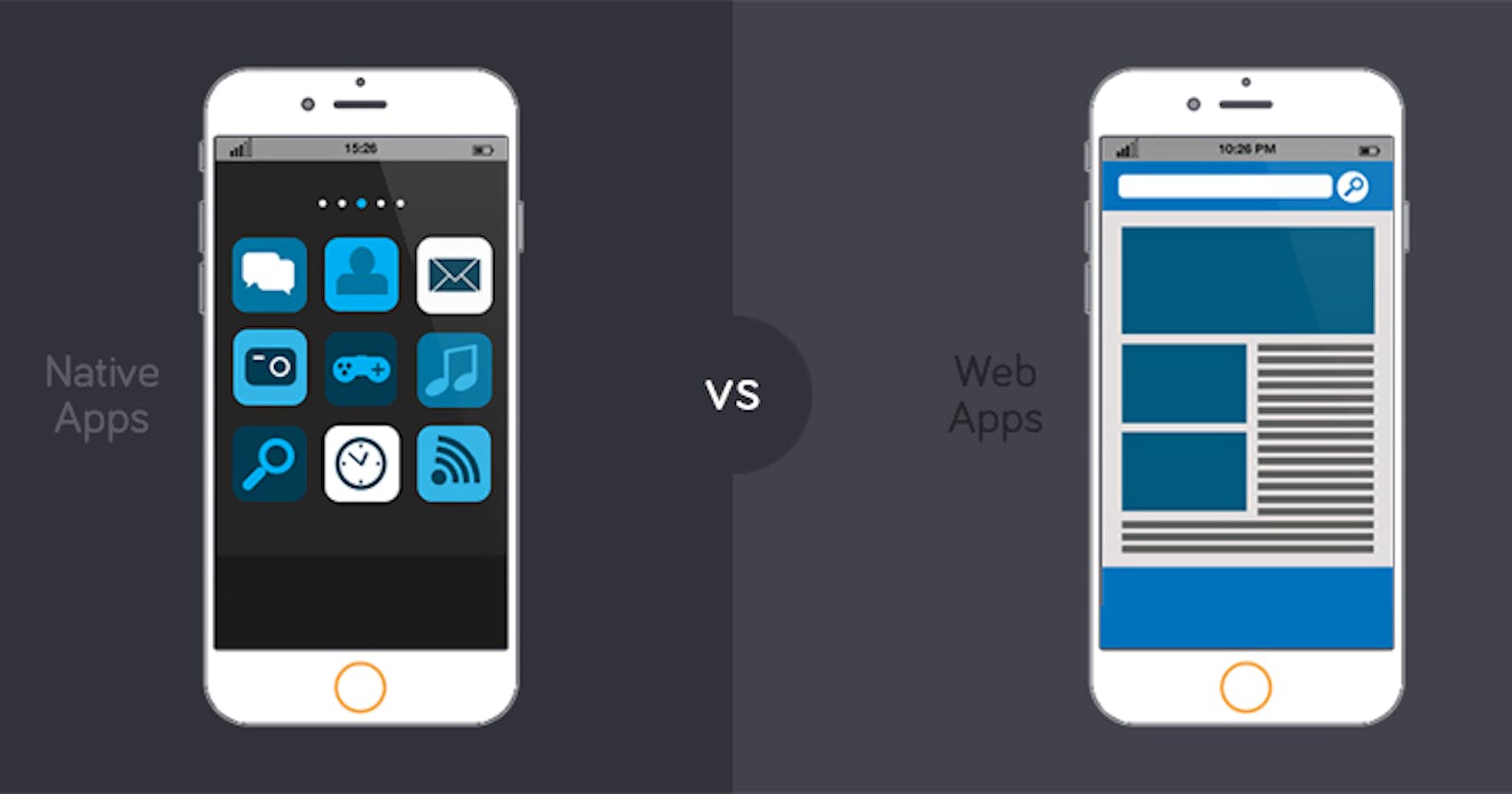Web App refers to a web-based application that runs on the Internet and standard browsers, which is equivalent to a web page and then an App shell. But Web App has the following cons of Web Apps: **
Web applications that support multiple mobile browsers can be an expensive proposition for developers because it will increase the cost of developing and maintaining them.
Different users use different mobile browsers. This can make it difficult for developers to maintain records of their usage patterns and also provide support for all these records.
Since there is no standardized quality control system for Web applications, developers may not always be able to ensure the safety and security of applications.
Pros of Web Apps:**
Web applications are easier to maintain because they have a common code base(library) on multiple mobile platforms.
The web application can be manipulated to be compatible with any old mobile device. Web applications do not require developers to submit their applications to any application store for approval. Of course, the Apple App Store does provide a series of Web applications.
Since web applications do not need to be approved by the application market, they can be released in any form at any time according to the developer's preference.
Have you used Microsoft PowerPoint or Word? These can run directly on your computer or on your smartphone. Simply put, native applications are specially developed for certain operating systems, such as iOS, Android, BlackBerry, etc., and they run on their respective mobile devices.
Pros of Native Apps**
Since native apps use the built-in functions of the device (such as camera, microphone, location services, etc.), they are easier to use and execute faster on the device.
Native apps are fully supported by the app store and market. Users can easily find and download apps of their choice from these stores.
Since native apps must be approved by the app store they are targeting, users can ensure that the app is safe and fully compatible with their device.
Native apps are more suitable for developers, they provide SDK and all other tools to create apps more easily.
Cons of Native Apps: **
For developers, native apps are often a more expensive proposition. This is especially true for developers who want their applications to be compatible with multiple mobile devices and platforms.
The cost of application maintenance and application updates for native applications is higher, especially if the application supports multiple mobile platforms.
The process of obtaining native apps in the app store can be lengthy and tedious for developers and does not always lead to success.
Users of different mobile devices may be using different versions of the application, which makes it not only difficult for developers to maintain and provide support, but also makes it difficult for users to effectively communicate with other users of the application, play games, etc.
